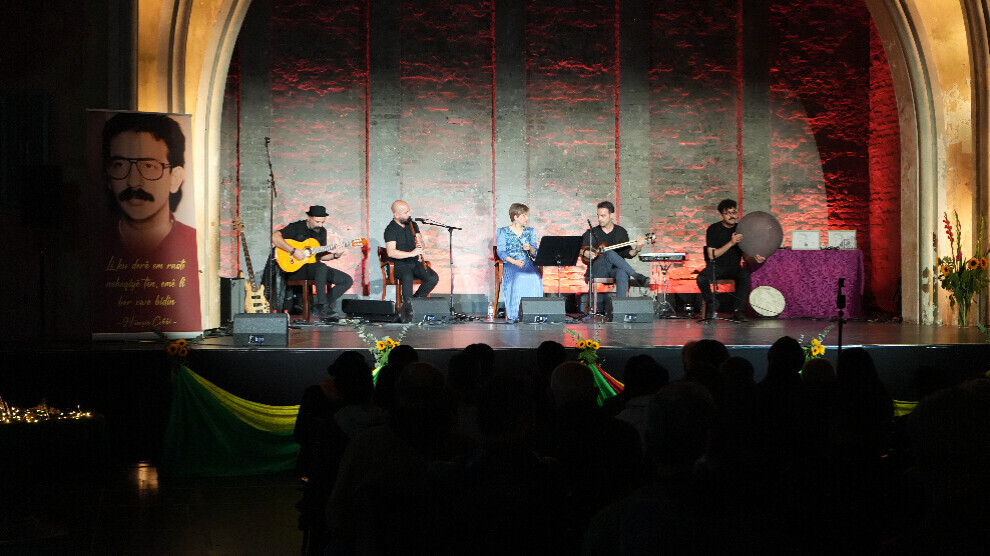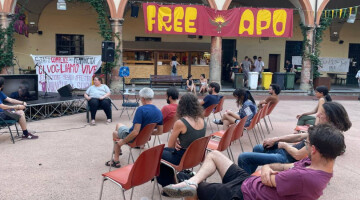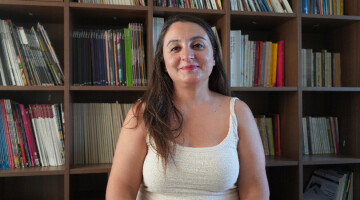The Hüseyin Çelebi Literature Festival, organised by the student associations Yekîtiya Xwendekarên Kurdistan (YXK) and Jinên Xwendekarên Kurdistan (JXK), took place in Berlin on Saturday. The event has been held since 1993 to honour the legacy of Hüseyin Çelebi, a pioneer of the Kurdish freedom movement in Germany and a co-founder of student organising in Europe. The literature festival includes a competition to promote Kurdish culture, awarding prizes for self-written short stories and poems in various languages.
Numerous authors and artists took part in the 31st Literature Festival, including the musicians Rotînda, Hozan Comerd, Hozan Aydın and Talat Yeşil. The event began with a minute's silence in honour of those martyred in the Kurdish freedom struggle, followed by a film about the life and struggle of Hüseyin Çelebi. In the welcoming address, his father, Rıfat Çelebi, who died in May 2023, was also remembered.
“Rıfat and Hüseyin Çelebi live on in this annual literary event and in our political work. They were not only father and son, but also close companions who had a great influence on the Kurdish community in Europe in the 1980s and 1990s. The task of the student associations is to continue this tradition and to build a bridge between Kurdistan and Europe, as well as between the universities and society. As the Kurdish diaspora, we fight to protect our identity, language, literature and culture,” said the spokeswoman on behalf of the Literature Festival Preparation Committee. The Kurdish culture is criminalised and suppressed, she said, and women play an important role in the fight to preserve their own identity. The speaker ended her welcome address with a quote from Abdullah Öcalan: ‘No power can any longer deny our language, identity and culture.’
After the speech, Bilgin Kılıç recalled his collaboration with Hüseyin Çelebi in the Kurdistan Committee in Cologne and in the translation of the manifesto of the Kurdistan Workers' Party (PKK). Nurê Alkış from the Yazidi Women's Council in Berlin recited the poem ‘Ferman e Dayê’ by Lava Şengalî, followed by a play by Yekta Hêvî and a dance performance by the Balochi art collective Yaagi, which ended with the slogan ‘Jin, Jiyan, Azadî’ (Woman, Life, Freedom).
At the event, prizes were awarded for poems and stories in the Kurdish languages Kurmancî and Soranî, as well as in German, Turkish and Persian. Lukas received the first prize for his story ‘A Friend Comes Back’; other prizes in this category went to Helin Kurt for ‘In the Emergency Room’ and Ilhami Akter for ‘The War Veteran's Trauma’. Eylem Kahraman was honoured for her poem ‘Licorice Root Flavour’.















